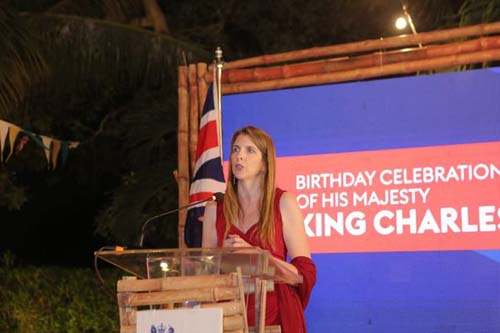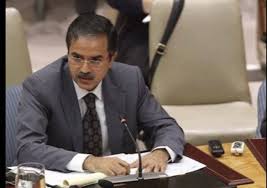UK National Day climate themed celebrations conclude in Lahore and Karachi

Celina Ali
Islamabad: On Friday the UK concluded its celebrations marking his Majesty King Charles III’s 75th Birthday, with a final event in Karachi, following those in Lahore on Thursday and Islamabad on Tuesday.
The King’s Birthday Party events, which double as a National Day for the UK, had an environment and climate theme, to reflect both the King’s interest in this area and the high priority given to this work by the UK.

Hosted in the garden of ‘Acton House’ at the Deputy High Commission Karachi, Friday’s ‘village’ styled event was attended by British High Commissioner, Jane Marriott OBE CMG, and the visiting British Army’s Chief of the General Staff, General Patrick Sanders KCB, CBE, DSO, ADC Gen. In attendance as Chief Guest was the Caretaker Minister for Law, Religious Affairs and Human Rights, Omer Soomro. Also present were representatives from the Karachi Relief Trust with whom the Deputy British High Commission Karachi collaborate to support the rehabilitation of flood-affected communities in Sindh.

With COP28 set to take place on the 30th November in the UAE, these national celebrations were used to open environment and climate related conversations ranging from how to build on Pakistan’s negotiating success on a Loss and Damage Fund at COP27. To how Pakistan can safeguard its marine economy via the Commonwealth’s Blue Charter.

The King’s Official Birthday is the selected day on which the birthday of the monarch is officially celebrated. The day is treated as the national day of the United Kingdom.
This is the first King’s Birthday Party (KBP) since 1951 and the first time a UK monarch’s birthday has been celebrated since the death of, Her Majesty Queen Elizabeth II, on 8 September 2022.
All of the KBP events in Pakistan were supported by the Band of the Honourable Artillery Company, whose rendition of the Punjabi classic ‘Pasoori’ has recently gone viral.

The UK has recently announced two new climate related initiatives. This included the start of phase two of the UK’s Climate Finance Accelerator Programme, which will see eight innovative Pakistani-based projects receive technical support to help them find private investment to tackle climate-related issues. As well as a new programme to expand a piloted AI-based ‘Early Warning Forest Fire Detection System’ to cover more forested areas of Khyber-Pakhtunkhwa as well as the Federal Capital Territory, which will help protect lives, jobs, livelihoods and Pakistan’s biodiversity.
Tackling the effects of Climate Change remains a priority for the UK. In September UK pledged $2 billion to the Green Climate Fund, (of which Pakistan is a beneficiary), the biggest single funding commitment the UK has made to help the world tackle climate change. Since 2011 UK climate aid spending has helped over 95m people cope with effects of climate change and reduced or avoided over 68m tonnes of greenhouse gas emissions. This goes hand in hand with UK’s domestic transition to clean forms of energy. UK has cut emissions faster than any G7 country. Low carbon sources now provide half of the UK’s electricity.
The UK is committed to working in partnership with Pakistan to improve climate resilience and address financing needs to tackle climate change. We are making good progress with wide ranging collaborative and innovative projects – from our 5-year water governance programme which has improved the resilience of over 2 million people through nature-based interventions to the development of a Pakistan Climate Investment Fund which will mobilise private sector climate finance for projects that strengthen Pakistan’s climate resilience.
The UK is also making its voice heard in the multilateral system to influence environmental outcomes to benefit Pakistan. In the UAE at COP28, the UK will be tirelessly advocating to ensure that this COP delivers an outcome that puts the world on track to 1) keep temperature rise below 1.5C by halving global emissions by 2030, 2) build resilience to current and future climate impacts, and 3) halt and reverse global biodiversity loss – by 2030.





